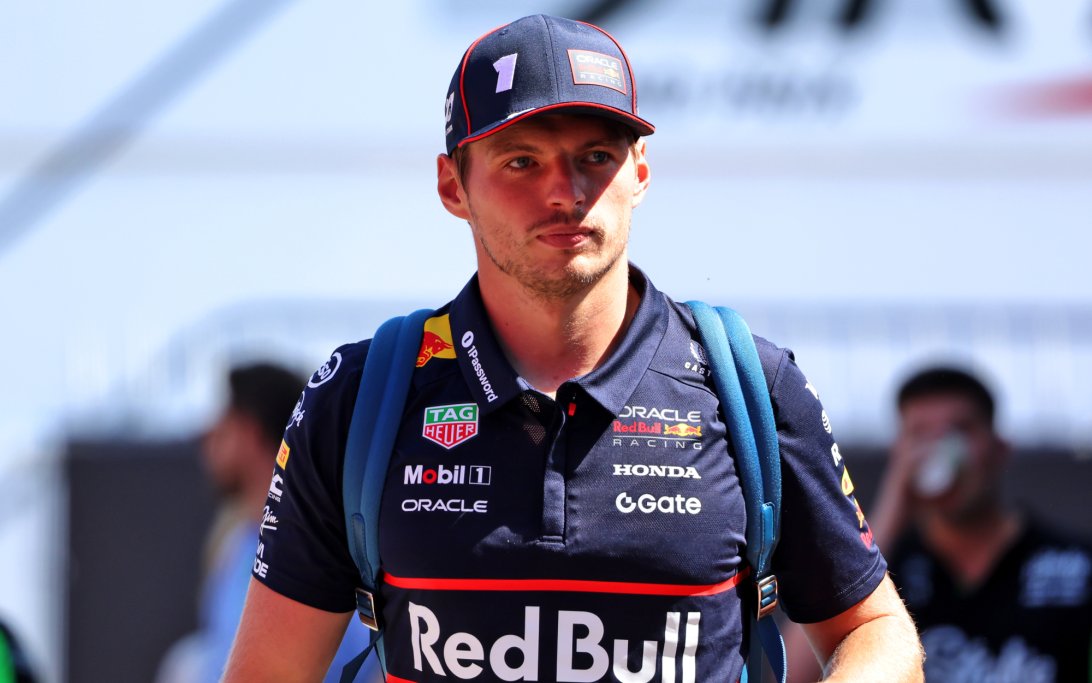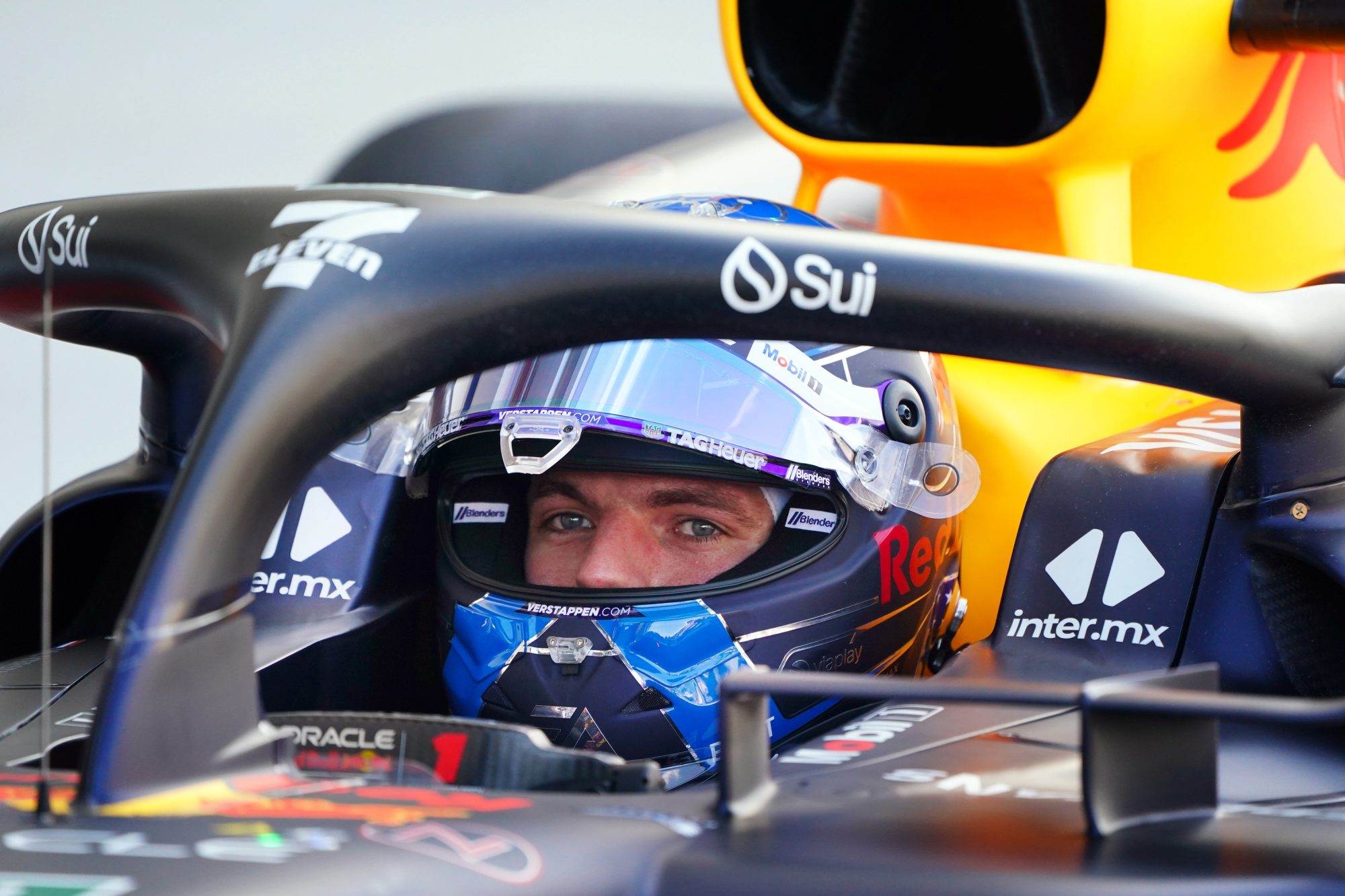The World Without Max Verstappen: A Formula 1 Reimagined
Max Verstappen is undeniably one of the most electrifying talents to ever grace Formula 1. With a career that has already seen four World Championships and more than 60 wins, Verstappen has redefined the sport’s landscape. His rapid rise, uncanny ability to dominate races, and no-nonsense attitude have made him a global icon. However, what if Max Verstappen never joined Formula 1? How would the sport have unfolded in the years following his meteoric entry? Let’s dive into an alternate timeline and explore what a world without Max Verstappen would look like.

Verstappen’s Early Career: A Talent Never Discovered
Max Verstappen’s journey to F1 is nothing short of legendary. From the moment he set foot in a kart at the age of four, under the guidance of his father Jos Verstappen, Max’s rise was meteoric. By the time he made his debut in Formula 1 in 2015, Verstappen was already a seasoned driver, having won numerous karting championships. However, in a world where Max never entered motorsport, we imagine a very different path for Red Bull Racing and the drivers who would have filled his void.
In this reimagined timeline, young Max expresses no interest in motorsport, despite meeting drivers and attending F1 events. After years of pressure from his father to follow in his footsteps, Max channels his frustration into another sport entirely—becoming a prize-winning middleweight boxer. This new direction would have been far from the world of F1, and without his unique talents, the Red Bull Racing team would be forced to look elsewhere for their next star.
2015: Red Bull’s Search for a New Star
Red Bull Racing was in a transitional phase at the time. After the hybrid era’s dawn, the team’s dominance began to fade, and the Renault engine—once a symbol of power—was proving unreliable. In this new world, Red Bull would have had to rely on a different set of talents to lead them through this period. Daniil Kvyat, who was already in the Red Bull junior team, would have likely been promoted to the senior team in 2015, and his performance in place of Verstappen would have shaped the team’s trajectory.
Kvyat, fresh off his impressive 2014 season with Toro Rosso, would have taken the reins at Red Bull alongside Daniel Ricciardo, who had already proven himself as a capable driver but had yet to claim a title. This pairing of Kvyat and Ricciardo, although promising, would have lacked the firepower Verstappen brought to the team.
Toro Rosso, meanwhile, would have been left to continue with a blend of promising young talents. Carlos Sainz, fresh off his impressive performances, would have continued to rise through the ranks, while Pierre Gasly—who would eventually replace Kvyat in the real timeline—would likely have spent more time in the lower ranks, honing his skills.

2016–2017: Red Bull’s Struggles Continue
Without Verstappen’s brilliance to lift the team, Red Bull would have continued to struggle against the might of Mercedes and Ferrari. In 2016, Ricciardo, in his role as team leader, would have been forced to settle for podiums rather than victories, with Mercedes’ Lewis Hamilton and Ferrari’s Sebastian Vettel dominating the scene. The 2016 season, which saw Verstappen’s stunning win in Spain after an audacious drive from the back of the grid, would have lacked that spark.
Meanwhile, Red Bull’s junior drivers would continue to develop. Kvyat’s promising start would likely have stalled, while Sainz, now in Toro Rosso, would begin to shine but still fall short of competing with the top teams. Gasly, meanwhile, would find his way into the Toro Rosso seat by 2017, but his journey to F1 glory would be much slower, without the high-profile exposure that Verstappen received.
2018–2020: The Ricciardo and Sainz Show
As Ricciardo’s tenure with Red Bull extended into 2018, the absence of Verstappen would leave the Australian as the undisputed leader of the team. But Ricciardo would find himself facing ever-increasing competition from within his own ranks, as Carlos Sainz began to develop into a formidable driver. Without Verstappen’s lightning-fast ascension, Sainz would likely have been handed more opportunities earlier on, pushing him further up the grid.
While Mercedes would continue its dominance, Ferrari, with a growing Vettel and a resurgent Kimi Räikkönen, would challenge them for supremacy. Ricciardo’s two wins in Monaco and China would be the highlights of Red Bull’s 2018 campaign, but they would remain unable to challenge Mercedes or Ferrari for the championship.
Sainz’s eventual move to McLaren in 2019 would have been just as impactful as it was in our reality, but without Verstappen’s rise, McLaren’s recovery might have been slower, with Sainz providing a steady hand but not the beacon of hope that Verstappen brought to Red Bull.
2021–2023: A Two-Horse Race
In a world where Max Verstappen never entered Formula 1, the 2021 season would have been very different. Mercedes and Ferrari would have fought for supremacy with no Verstappen to disrupt the order. With Hamilton in his prime and Vettel still at Ferrari, the two teams would have had an intense rivalry, with Ricciardo and Sainz as their primary challengers. However, without Verstappen’s meteoric rise, the sport would have lacked a truly dominant, young challenger to the established order.
The 2022 season, marked by technical changes, would have still seen Mercedes and Ferrari on top, with Ricciardo and Sainz continuing to fight for podiums. Red Bull, still struggling with reliability, would have remained a mid-tier team. With no Verstappen, the sport would have seen a stronger resurgence from drivers like Charles Leclerc and Lando Norris, who would have stepped into the role of the next generation of F1 stars.

2024 and Beyond: A New Era Without Max Verstappen
By 2024, the Formula 1 grid would be markedly different. Red Bull, though still competitive, would have failed to dominate the way they have in the current era. Instead, we would see a battle between teams like Ferrari, McLaren, and Mercedes, each with their own stable of talented drivers. Carlos Sainz, without Verstappen’s looming presence, would likely have emerged as one of the sport’s top drivers, with Norris and Leclerc also fighting for supremacy.
The lack of Verstappen’s influence would have meant the continuation of a much more competitive midfield. McLaren, still on the rise, would have had a more gradual recovery, but without Verstappen’s revolution of the sport in the Netherlands, the Dutch Grand Prix would have remained a pipe dream. The Orange Army, which has become synonymous with Verstappen’s rise, would not have taken shape, leaving F1 without the electric atmosphere that the fans bring to races.
Conclusion: A Formula 1 Without Verstappen
Max Verstappen’s absence from Formula 1 would have left a considerable void in the sport. His rise from a child prodigy to a dominant force in F1 has redefined the sport’s modern era. Without him, Red Bull would have lacked a generational talent, and the sport’s landscape would have been marked by the continued dominance of Mercedes and Ferrari.
While drivers like Daniel Ricciardo, Carlos Sainz, and Lando Norris would have still risen to prominence, they would have faced different challenges without Verstappen’s ability to disrupt the established order. The Dutch Grand Prix, the Orange Army, and the electrifying atmosphere Verstappen brings would have been absent from the sport, leaving Formula 1 a quieter, less passionate place.
In this alternate timeline, F1 would have still been thrilling, but it’s hard to deny that Max Verstappen’s presence has been a game-changer—his brilliance has reshaped the sport and its future.
News
Schock-Geständnis von Oliver Pocher: “Ich wollte Amira Aly erst gar nicht heiraten!” – Das tragische Fundament einer gescheiterten Promi-Ehe
Die schillernde Welt der Prominenten ist oft eine Bühne für perfekt inszenierte Romanzen. Doch hinter dem Scheinwerferlicht verbergen sich menschliche…
Rolf Becker (90) verstorben: Die ARD trauert um Otto, den stillen Riesen aus In aller Freundschaft und das Herz einer Schauspielerdynastie
Manchmal sind es die leisesten Nachrichten, die den lautesten Schmerz verursachen. Am Freitag erschütterte eine solche Mitteilung die deutsche Film-…
Zerbricht Anna-Carina Woitschacks neue Liebe am Schatten des Scheidungskriegs? Die erschütternde Stille hinter der Instagram-Fassade
In der glamourösen, aber oft gnadenlosen Welt des deutschen Schlagers blickt die Öffentlichkeit gebannt auf eine Beziehung, die unter dem…
Der offene Gottschalk: Demenzangst, Krebs-Schock und das kontroverse Urteil über den Tod
Der letzte Vorhang: Gottschalks schockierende Offenheit über Demenz, Krebs und die Suche nach Sinn am Ende der Karriere Thomas Gottschalk,…
Aus und vorbei mit der Leichtigkeit: Die Geissens leben nach brutalem Überfall in ihrer Traumvilla in ständiger Alarmbereitschaft
Der Albtraum, der die Realität verschluckte Die Bilder des Glamours und des unbeschwerten Luxus, die Carmen und Robert Geiss jahrelang…
Heiße Küsse bei “Bauer sucht Frau”: Nach dem öffentlichen Liebesbeweis schickt Bäuerin Simone ihren Frank eiskalt zurück in die Wohnwagen-Tabuzone!
Die Suche nach der großen Liebe ist selten ein einfacher Weg, doch bei Simone (55) und Frank (57) in der…
End of content
No more pages to load












